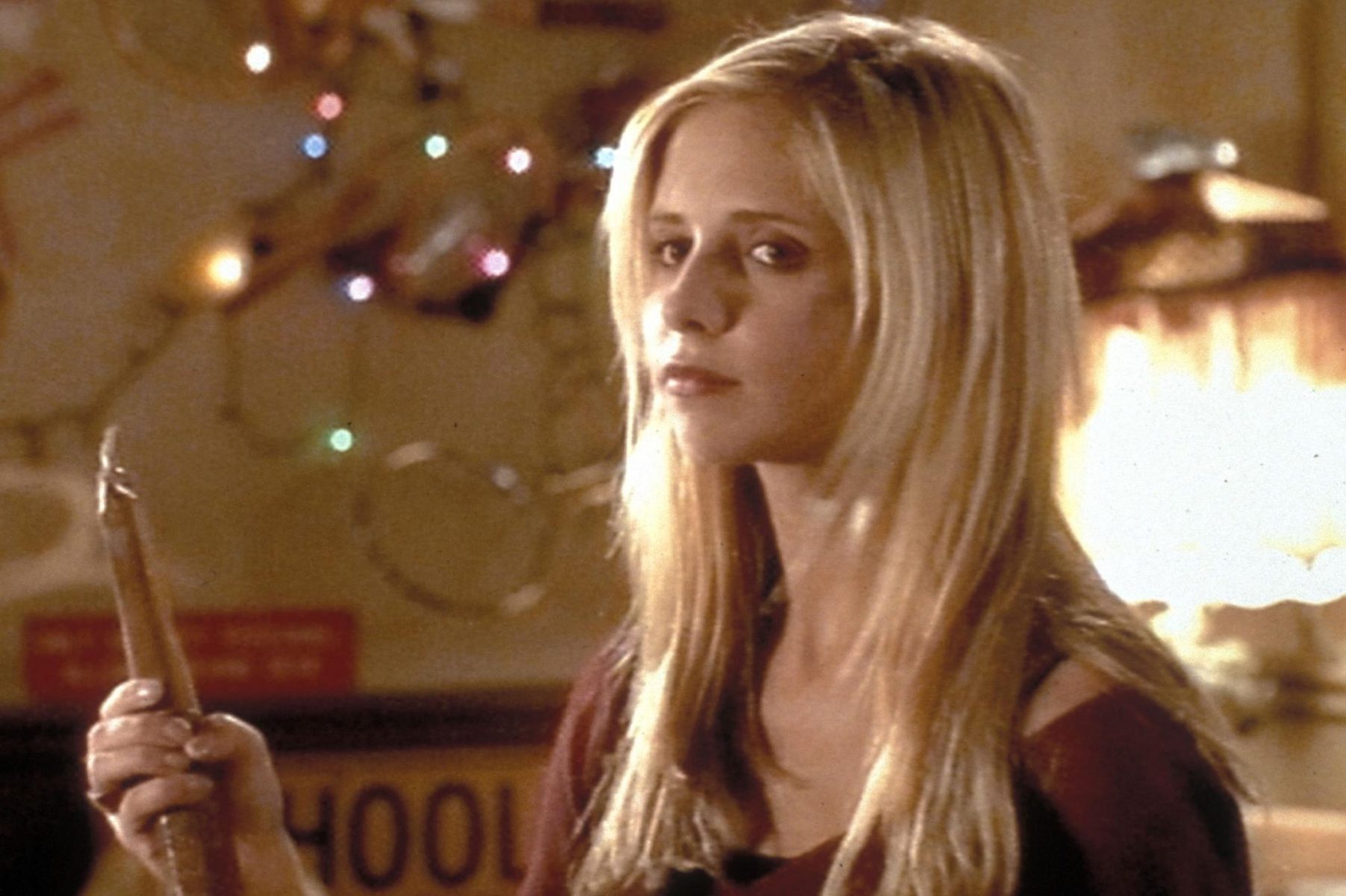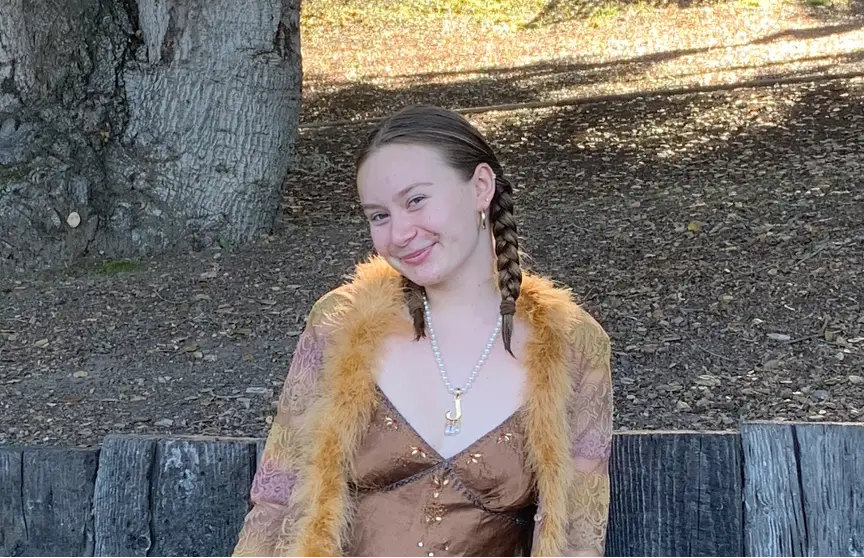Twenty-five years ago, “Buffy the Vampire Slayer” premiered on the WB network and forever changed television. Based on the critically panned movie of the same name, Joss Whedon set out to create a show where the commonly victimized blonde girl became the hero. Whedon revealed the inspiration for the show in an interview for the Season 1 DVD: “The idea of Buffy came from the very simple thought of a beautiful blond girl walks into an alley, a monster attacks her, and she’s not only ready for him––she trounces him.” “Buffy” was one of the first shows that seamlessly blended multiple television genres.
New Yorker critic Emily Nussbaum said it created “a mythic, feminist-inflected meld of horror, comedy, and teen drama.” Sarah Michelle Gellar brought the titular character and quippy protagonist, Buffy, to life and can be credited as the core foundation of the show’s lasting success. In 2018, Vulture described Gellar’s performance as “equal parts yearning and guarded, steely and open, warm and painfully human,” which “meant that even the most outlandish moments in the series were anchored by true pathos and humanity.” “Buffy the Vampire Slayer” went on for seven seasons, with 144 episodes total, with Whedon.
After “Buffy” wrapped in 2003, Whedon worked on many other renowned projects that propelled him from cult classic TV creator to blockbuster filmmaker. He directed “The Avengers” in 2012 and “The Avengers: Age of Ultron” in 2015. Both films were highly successful for Marvel.
Then, in 2017, Whedon’s ex-wife Kai Cole penned a guest blog for The Wrap about relationships Whedon allegedly carried out during their marriage. Whedon’s spokesperson responded to Cole’s post, titled “Joss Whedon Is a Hypocrite Preaching Feminist Ideals,” and stated that it “includes inaccuracies and misrepresentations.” Still, no further comment reached the public, allegedly due to Whedon’s wish to keep the family matter private.
In July 2020, the star of the 2017 superhero movie “Justice League,” Ray Fisher, tweeted allegations against Whedon. He claimed that Whedon’s behavior was “gross, abusive, unprofessional and completely unacceptable” on-set. Co-star Gal Gadot supported the claims and said Whedon “threatened my career” in response to her objection to his “Wonder Woman” script suggestions. Whedon departed HBO project “The Nevers” four months later, citing the pandemic as the primary cause. HBO released a statement saying, “We have parted ways with Joss Whedon.”
The media noted the allegations against Whedon as well as his slowly growing isolation in the entertainment industry; however, it wasn’t until “Buffy” actress Charisma Carpenter released a statement that the world began to pay closer attention to claims of Whedon’s misconduct. In February 2021, Carpenter condemned Whedon’s casually cruel behavior and tweeted that he “has abused his power on numerous occasions,” which worsened her performance anxiety.
Carpenter also starred in the famous “Buffy” spinoff called “Angel,” which had five seasons spanning 1999 to 2004. Carpenter shared the horrific response she received from Whedon when she became pregnant during filming. She explained, “He proceeded to attack my character, mock my religious beliefs, accuse me of sabotaging the show and then unceremoniously fired me following the season once I gave birth.”
Various “Buffy” co-stars of Carpenter’s rallied their support, with Eliza Dushku, who played fan-favorite Faith, writing, “CC, my heart aches for you and I’m so sorry you have held this for so long.” Echoing Carpenter’s statements, Michelle Trachtenberg released her comments; Trachtenberg was 14 when she was cast as Dawn, younger sister of Buffy, and she wrote, “There was a rule. Saying. He’s not allowed in a room alone with Michelle again.” Other “Buffy” stars released statements of support and detailed their own experiences with Whedon. Star of the show Gellar said on Instagram, “I stand with all survivors of abuse and am proud of them for speaking out.”
Whedon responded to the allegations of his damaging behavior on the “Buffy” set in a January 2022 interview with New York Magazine. He denied deliberately cruel or physically abusive behavior while acknowledging he was not as civilized back then because he was young. He stated, “I yelled, and sometimes you had to yell.”
Whedon’s evasive and relaxed tone, in addition to his vague and defensive comments, reveals the lack of accountability he took privately and publicly. He never apologized, which brings into question the authenticity of his stated regret and makes it even harder for audiences to justify his actions or overlook the dark shadow he casts over such a beloved show.
Is it possible or prudent for society to separate treasured art from its abusive creators? Does it taint the legacy of the art when the artist has committed horrible transgressions? Does it devalue the art entirely? It is impossible to say because, by nature, art remains subject to personal interpretation. Hopefully, the spotlight that society has finally shined on the abuse and cruelty in the entertainment industry means fewer people will suffer, especially in silence.
“Buffy” means so much to countless people and has garnered a strong fanbase in pop culture; it cannot be eradicated or ignored. The beauty and legacy of “Buffy the Vampire Slayer” should be remembered for the storytelling, the performances, the reminder to be brave and believe in ourselves.
Everyone should remember it for the personal impact on their lives and associate it with Whedon as little as possible because it is genuinely the fans’ connection to the show that makes it so iconic. As Gellar said in an Instagram post, “While I am proud to have my name associated with Buffy Summers, I don’t want to be forever associated with the name Joss Whedon.” Gellar speaks to the sentiments of “Buffy” fans everywhere, who want to remember the show fondly and not allow the bullying and abuse of Whedon to ruin it.

















